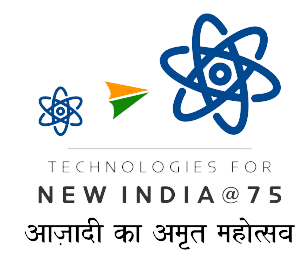About HRI
Harish-Chandra Research Institute (HRI) is a research institution, named after the mathematician Harish-Chandra, and located in Prayagraj (Allahabad), Uttar Pradesh. It is an autonomous institute, funded by the Department of Atomic Energy (DAE), Government of India.
Research at HRI is focused on Mathematics and Theoretical Physics. In the last couple of decades, the institute has contributed significantly to both research and training in Physics & Mathematics. The academic community at HRI consists of over 35 faculty members, 30 post-doctoral fellows, and 80 graduate students.
The awards bestowed upon the faculty includes 1 Dirac medalist, 1 Padma Bhushan and 5 Bhatnagar awardees. Around 25 of the alumni of the institute hold faculty positions in premier scientific institutions of the country.
The Institute has a graduate programme leading to the Ph.D. degree. Degrees for the programme are awarded by the Homi Bhabha National Institute. Admissions to the graduate programme in Physics take place through a Joint Entrance Screening Test, which is organized in collaboration with several other institutions, and an interview whereas admissions to graduate programme in Mathematics is through NBHM research fellowship together with an interview. Further, the Institute offers post-doctoral fellowships, and visiting positions at various levels.
Background
The Institute started in 1975, on an endowment from the B.S. Mehta Trust, Calcutta. Indeed, until October, 2001, the Institute was named the Mehta Research Institute.
During its initial stages, the Institute was managed by Prof. B.N. Prasad, and later, by Prof. S.R. Sinha, from the University of Allahabad. The formal leadership structure of the Institute came into being with Prof. P.L. Bhatnagar, who took charge, as the first Director, from Prof. Sinha. After Prof. Bhatnagar, the stewardship of the Institute returned to Prof. Sinha, until January 1983, when Prof. S.S. Shrikhande of the Bombay University joined the Institute as the next Director.
During Shrikande's tenure, an ongoing dialogue with the DAE, regarding the future of the Institute, entered a decisive stage. The DAE constituted a review committee to examine the issue. Following that committee's report, in 1985, the Government of Uttar Pradesh agreed to provide land for the Institute campus, and the DAE promised financial support for meeting both the recurring and non-recurring expenses of the Institute.
In January 1992, finally, the Institute acquired about 66 acres of land in Jhusi, Prayagraj (Allahabad). Another important event in the Institute's short history occurred at this point, Prof. H.S. Mani took over as the Director from Prof. Shrikande. With Prof. Mani's arrival, and the move, in 1996, to the new campus at Jhusi, the activities of the Institute gained a fresh impetus, marking a period of rapid growth that still continues.
After a distinguished tenure of about nine years Prof. Mani retired in August 2001 and the charge was taken over by Prof. R. S. Kulkarni. After Prof. Kulkarni's tenure, Prof. Amitava Raychaudhuri was the Director from July 19, 2005 to May 15, 2011. After Prof. Amitava Raychaudhuri's tenure, Prof. Jayanta Kumar Bhattacharjee was the Director from April 29, 2012 to April 9, 2017. Prof. Pinaki Majumdar was the Director from April 10, 2017 to January 31, 2024. Prof. Dileep Jatkar is current Acting Director since February 1, 2024. The Institute continues to be devoted to fundamental research in diverse areas of mathematics and theoretical physics. Research is carried out by faculty members, visiting members, post-doctoral fellows and Ph. D. students.
Future
HRI seeks to expand its activities. New additions are made to the faculty every year. We expect the faculty strength to rise to 50 in the current phase of development. The number of graduate students, and of post-doctoral fellows, will increase correspondingly.
We also hope to see more interaction between the Institute and the university system in the country. Already, we have various programmes which enable undergraduate and graduate students, from various universities, to visit HRI for periods ranging from a few weeks to a couple of years. We envisage expansion in such programmes over the next several years.

